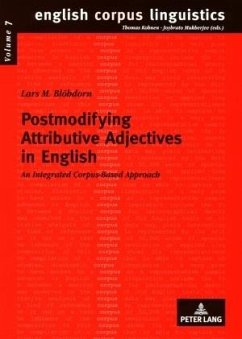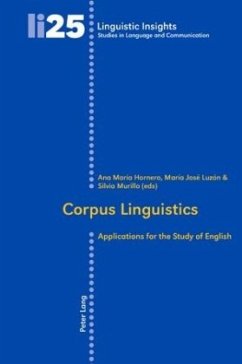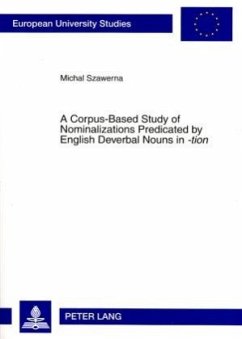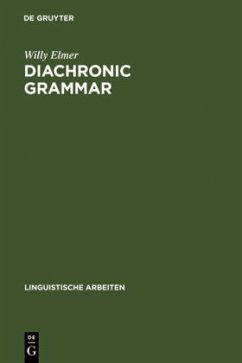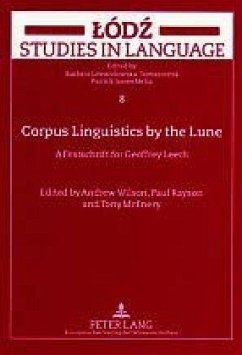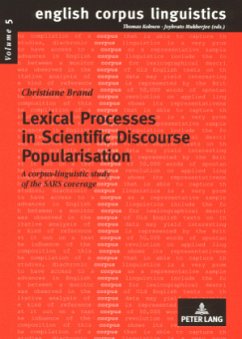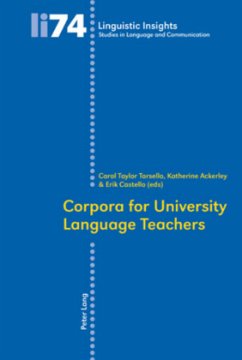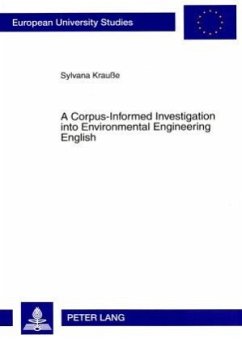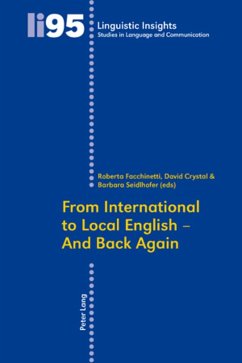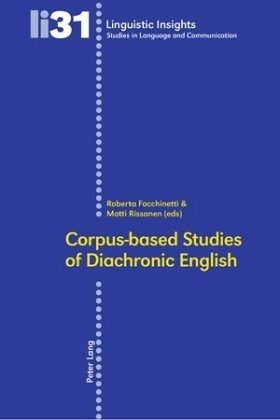
Corpus-based Studies of Diachronic English
Versandkostenfrei!
Versandfertig in 6-10 Tagen
89,95 €
inkl. MwSt.

PAYBACK Punkte
0 °P sammeln!
Corpus-based studies of diachronic English have been thriving over the last three decades to such an extent that the validity of corpora in the enrichment of historical linguistic research is now undeniable. The present book is a collection of papers illustrating the state of the art in corpus-based research on diachronic English, by means of case-study expositions, software presentations, and theoretical discussions on the topic. The majority of these papers were delivered at the 25 th Conference of the International Computer Archive of Modern and Medieval English (ICAME), held at the Univers...
Corpus-based studies of diachronic English have been thriving over the last three decades to such an extent that the validity of corpora in the enrichment of historical linguistic research is now undeniable. The present book is a collection of papers illustrating the state of the art in corpus-based research on diachronic English, by means of case-study expositions, software presentations, and theoretical discussions on the topic. The majority of these papers were delivered at the 25 th Conference of the International Computer Archive of Modern and Medieval English (ICAME), held at the University of Verona on 18-23 May 2004. A number of typological and geographical varieties of English are tackled in the book: from general to specialized English, from British to Australian English, from written to speech-related registers. In order to discuss their tenets, the contributors draw on corpora and dictionaries from different centuries, including the most recent ones; hence, they testify to the fact that past and present are so strongly interlocked and so inextricably entwined that it proves hard - if not preposterous - to fully understand Present-day English structure and features without turning back to the previous centuries for an in-depth knowledge of the 'whys' and 'hows' of the current state of the art.



